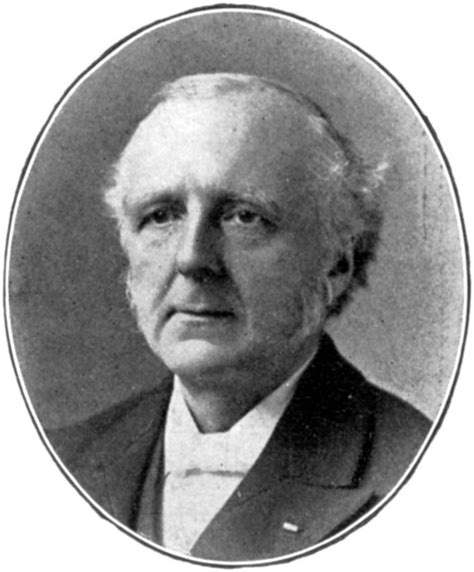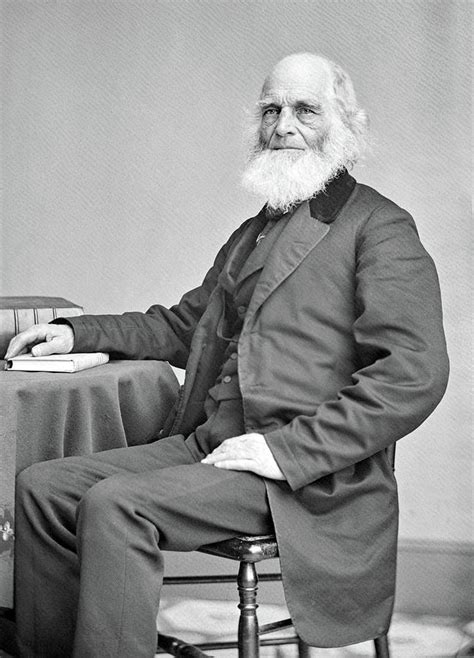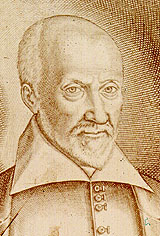A Quote by Elizabeth Borton de Trevino
Now I had lived long enough and had heard enough from urchins my age and from other slaves, to distrust the person who calls himself merciful, or just, or kindly. Usually these are the most cruel, niggardly and selfish people, and slaves learn to fear the master who prefaces his remarks with tributes to his own virtues.
Related Quotes
There's an old saying in the days of slavery, there are those slaves who lived on the plantation, and there were those slaves who lived in the house. You got the privilege of living in the house if you served the master to exactly the way the master intended to have you serve him. That gave you privilege. Colin Powell is permitted to come into the house of the master, as long as he will serve the master according to the master's dictates. Now, when Colin Powell dares to suggest something other than what the master wants to hear, he will be turned back out to pasture.
Jesus Christ has bought us with His blood, but, alas, He has not had His money's worth! He paid for ALL, and He has had but a fragment of our energy, time and earnings. By an act of consecration, let us ask Him to forgive the robbery of the past, and let us profess our desire to be henceforth utterly and only for Him- His slaves, owning no master other than Himself.
Julian was not insensible of the advantages of freedom. From his studies he had imbibed the spirit of ancient sages and heroes; his life and fortunes had depended on the caprice of a tyrant; and, when he ascended the throne, his pride was sometimes mortified by the reflection that the slaves who would not dare to censure his defects were not worthy to applaud his virtues.
All you have to do is go back to slavery - days, and there were two types of slaves, the house slave and the field slave. The house slave was the one who believed in the master, who had confidence in the master and usually was very friendly with the master. And usually he was also used by the master to try and keep the other slaves pacified.
If a slave were to raise his voice to his master, he risked all manner of punishment. Yet what was possible in many circumstances was to lift one's voice in song. This was a major ingredient in what is now known as blues and gospel. Slaves may have been regarded as subhuman by their cruel captors, but through music, they were proud and dignified.
The blacks of this region are a cheerful, careless, dirty, race, not hard worked, and in many respects indulgently treated. It is of course the desire of the master that his slaves shall be laborious; on the other hand it is the determination of the slave to lead as easy a life as he can. The master has the power of punishment on his side; the slave, on his, has invincible inclination, and a thousand expedients learned by long practice... Good natured though imperfect and slovenly obedience on one side, is purchased by good treatment on the other.
I believe that Jesus would have given His life for just one person. Jesus emptied Himself, He humbled Himself and He so yielded Himself to His Father's love that He had no ambition of His own. He was not looking to build an empire, He did not want praise or adulation or to impress people with who or how many followed Him. He stopped over and over again for just one person, for just one life.
It is a blessed thing that in every age some one has had individuality enough and courage enough to stand by his own convictions, -- some one who had the grandeur to say his say. I believe it was Magellan who said, The church says the earth is flat; but I have seen its shadow on the moon, and I have more confidence even in a shadow than in the church. On the prow of his ship were disobedience, defiance, scorn, and success.
He that boasts of his ancestors confesses that he has no virtue of his own. No person ever lived for our honor; nor ought that to be reputed ours, which was long before we had a being; for what advantage can it be to a blind man to know that his parents had good eyes? Does he see one whit the better?
And he began to see the truth, that Ged had neither lost nor won but, naming the shadow of his death with his own name, had made himself whole: a man who, knowing his whole true self, cannot be used or possessed by any power other than himself, and whose life therefore is lived for life's sake and never in the service of ruin, or pain, or hatred, or the dark.


































